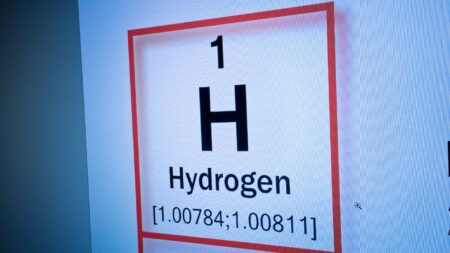The Malaysian Ministry of Science, Technology and Innovation (Mosti) is setting its sights on making hydrogen energy affordable for the local market.
Browsing: Report
India has placed a significant bet on green hydrogen. The Indian government has already committed substantial financial resources, with over Rs 19,000 crores earmarked to transform the nation into a “global hub” for green hydrogen energy production, utilization, and export. However, a recent report by Bengaluru-based think-tank Climate Risk Horizons has raised important questions about the potential environmental impact of India’s green hydrogen initiatives.
In recent years, green hydrogen has staged a remarkable comeback and is emerging as a linchpin in the pursuit of a climate-neutral economy. It promises to play a pivotal role, particularly in addressing emissions in challenging sectors such as transport, heating, and heavy industry, and offers a solution for inter-seasonal energy storage. This resurgence of green hydrogen, driven by both energy security and decarbonization imperatives, is now not only fostering economic opportunities but also birthing a new era of EU-Africa relations.
A recent industry-commissioned study, conducted by the Green Hydrogen Alliance (GHA) and backed by major players like Airbus, Air Products, and Associated British Ports (ABP), has unveiled a promising path to propel the UK’s green hydrogen market. The report suggests that this endeavor could not only yield an £11 billion economic boost but also slash over 1.7 million tonnes of carbon dioxide (CO2) emissions annually.
As the hydrogen economy gathers steam worldwide, experts are warning that the European Union (EU) must expedite the deployment of…
Mauritanian government and the European Union (EU) have come together to accelerate the development of Mauritania’s green hydrogen sector.
While much of the focus in international media has been on the United States and Europe’s endeavors in the low-carbon hydrogen sector, China’s significant role in this field has often been underreported. As the leading global player in hydrogen production and consumption, China’s strategies and actions are critical not only for its domestic energy landscape but also for the worldwide transition to cleaner energy sources.
India’s vision of becoming a green hydrogen leader has come under scrutiny as the think tank Climate Risk Horizons expresses concerns regarding the nation’s ambitious goal to produce five million metric tons of green hydrogen annually by 2030.
The world is at a critical juncture in the pursuit of sustainable energy alternatives. With the growing need to replace traditional fossil fuels, the quest for cleaner, greener energy sources has never been more urgent. In the second episode of the series “The Future of Energy,” the spotlight is on hydrogen, particularly green hydrogen, as a viable alternative that could revolutionize the energy landscape in Brazil and beyond.
The recently released “China Hydrogen Energy and Fuel Cell Industry Development Report 2022,” or “White Paper 2022,” by the China Hydrogen Energy Alliance, provides a comprehensive look at the status and future of the hydrogen energy industry in China and globally.









